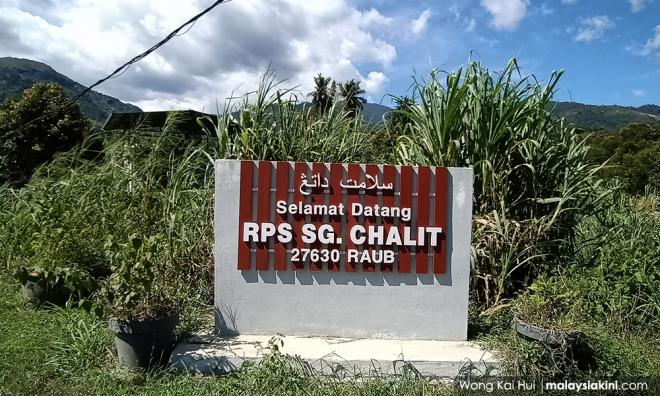
Over the past two weeks, tensions have risen over the Pahang government’s durian farm legalisation scheme in Raub with protests by hundreds of unlicensed farmers and claims by the firm in charge of the scheme that its workers have been harassed and intimidated over the issue.
But just how did the matter arise?
Essentially, the Pahang state government is attempting to reclaim unlicensed durian farms on a large scale through a joint venture between a state’s statutory body Perbadanan Kemajuan Pertanian Negeri Pahang (PKPP) and a royal-related private company Royal Pahang Durian Resources (RPDR).
As hundreds of unlicensed durian farmers have refused to enter into the “legalisation scheme” initiated by the joint venture RPDR-PKPP, the two sides remain deadlocked.
However, interestingly, some unlicensed farmers were previously incorporated under a scheme launched by Lembaga Kemajuan Perusahaan Pertanian (LKPP), which is the predecessor of the PKPP.
Several villagers in Kampung Sungai Chalit, Raub told Malaysiakini that LKPP promised to grant 0.81ha of land to each participant of a Security Relocation Scheme (RPSK) back in the 1970s.
In exchange, the participants who moved into the village would act as the authority’s informers regarding the activities of the outlawed Communist Party of Malaya (CPM) in the forest.
In other words, the villagers are claiming that the state government promised to grant them the land a few decades ago but is now attempting to reclaim it.
New award in June
In June, the Pahang government awarded RPDR-PKPP the lease and rights to 5,357 acres of land, which it then alleged up to 30 percent had been encroached upon.
Former village head Mohamad Ali, 80, has been in the village since 1979.
He told Malaysiakini that the Sungai Chalit relocation scheme was formed by LKPP and they called on people to settle in the village and promised to give each person 0.81ha of land.
After he became the village head in 1979, he had fought for the villagers for the land rights which were promised by the authority.
However, while some villagers have obtained land grants, some still have not until now.
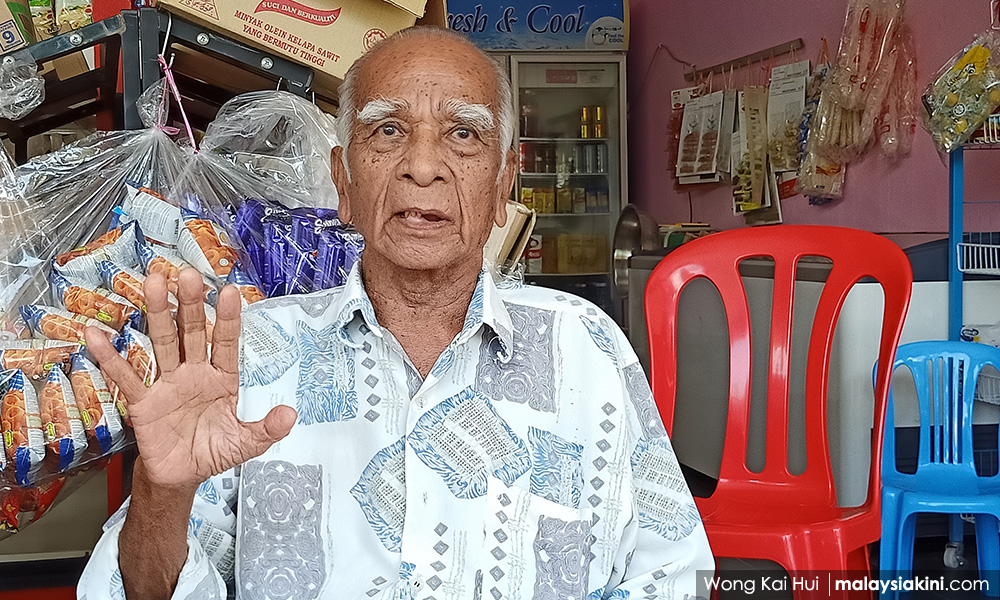
"LKPP promised to grant two acres (0.81ha) of land. But when we asked for (a land title certificate), they didn't give us at first. I told them ‘you can't do this, you have already promised',” said Mohamad (above).
"If you didn't promise, we wouldn't have come here," he added.
He described the area in the 1970s as a dense forest where the military and police were fighting against the CPM and no one dared to enter.
Relocation scheme recorded officially
The LKPP was established in 1969 under the Pahang Emergency Law (Enakmen Darurat Pahang (Bil 2) Tahun 1969) before it was converted into the PKPP.
The PKPP official website also records the history of the village's formation.
"Due to the floods in 1970/1971, and given that the activities of Communist Party are still rampant, LKPP was appointed to promote more community plans, namely the Flood Relocation Scheme (Rancangan Penempatan Semula Banjir, RPSB) and the Security Relocation Scheme (Rancangan Penempatan Semula Keselamatan, RPSK)," the website stated.
Additionally, the government’s open data also states that the RPS Sungai Chalit was formed in 1978 under the Security Relocation Scheme by LKPP, with 128 participants.
There is a total of four “RPSK villages” in Pahang, according to the open data. The remaining three are in Lipis District. These villages were established between 1977 and 1979.
The government data shows the total area of farms of three other villages, but in the case of Sungai Chalit, it was stated as “No lot”(Tiada lot).
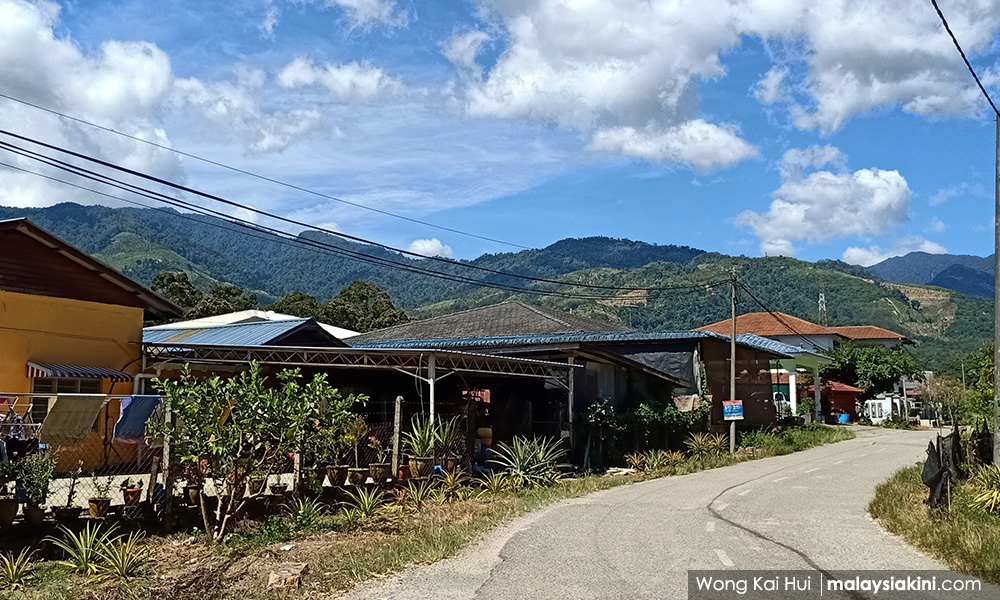
The residents of the Sungai Chalit village include ethnic Chinese and Malays. The village is located near several hills.
There are both legal and illegal farms on the hills, said the villagers.
‘Cultivated the land just for a living’
Mohamad does concede that some villagers reclaimed wasteland beyond the two acres promised by the authority.
He said the reason why the villagers cultivated the wasteland was very simple - they wanted to make a living.
"It was just to make a living. This is true for both the Chinese and the Malays. If there is empty land, we will open lah.
“No one else will come into this area, only our people here. So, just go and cultivate lah. You can grow durian, coconut, cocoa, anything," Mohamad added.
Malaysiakini visited the village on Aug 24, the day the state government officially took back the unlicensed land.
Villagers gathered in front of the village grocery store and accused the government of breaking its promise.
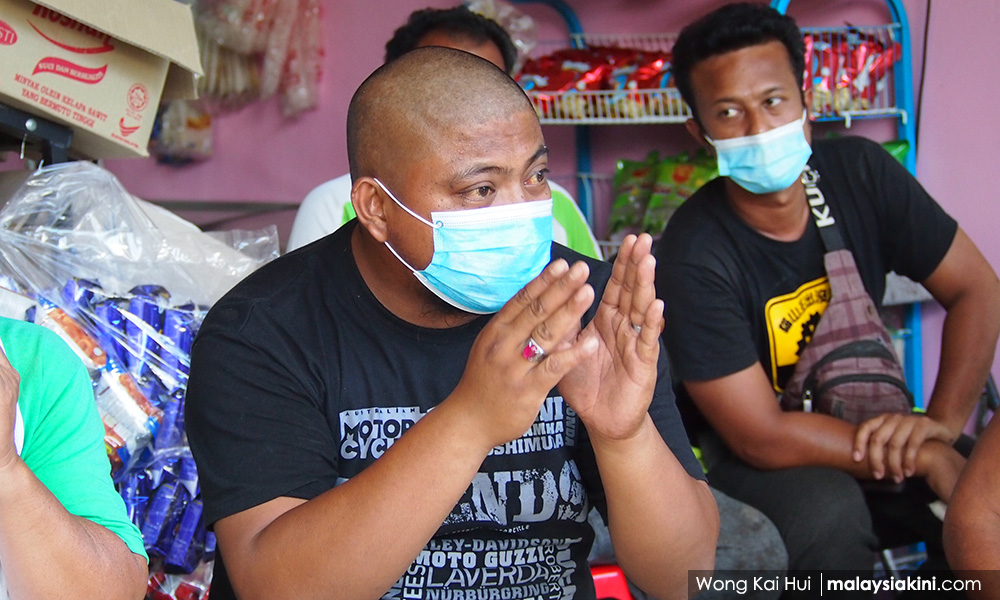
"Why did they give it to us and want to take it back now? They didn't give us the land title certificate," said Mohd Rizal Mohamed Rusli (photo), a second-generation villager
"[...] We think that people want this land because it has value now. We won't give it (up) because this is our right," added Rizal.
Maps drawn and numbered
Mohamad also recalled that the villagers had collected money to hire land surveyors to measure the area of their farms.
The location of their farms was measured and numbered. One villager showed the map to the press.
Rizal added that the LKPP later had photocopied the maps and submitted them to the land office.
Another pioneer, Mat Isa Salleh, 65, lamented that the villagers would lose decades of hard work if the land was allowed to be taken away by the consortium.
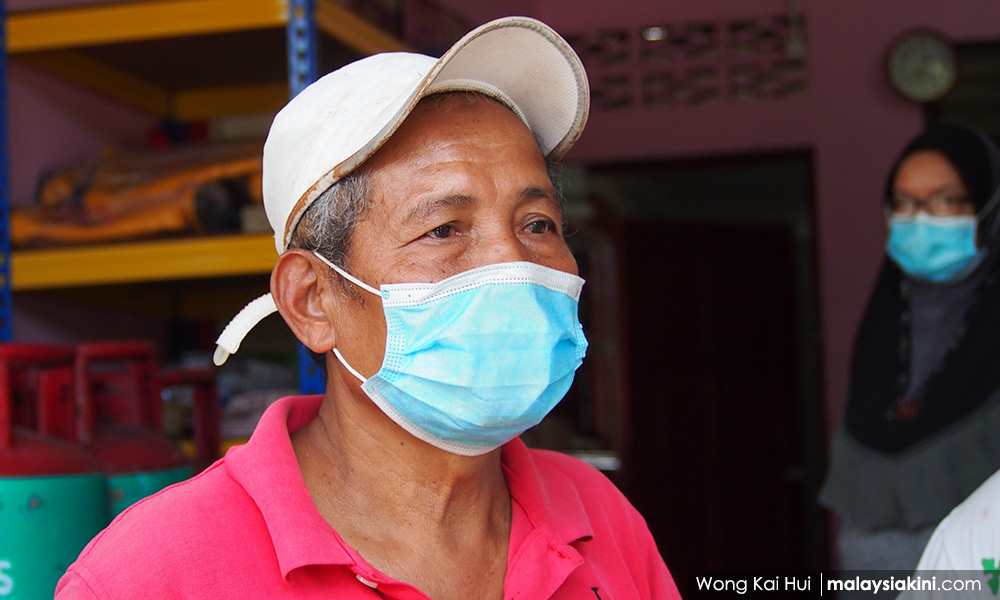
"If the company takes it away, it would be like going back to the 1980s. It's so difficult for us,” Mat Isa (above) said.
Malaysiakini has contacted the Pahang government for a response.
The main road to enter the unlicensed farms is at the end of the asphalt road in Sungai Chalit village. According to the villagers, the same road also leads to some farms with land grants.
On Aug 12, Royal Pahang Durian delivered several security checkpoint cabins as preparation for roadblocks, which alarmed the villagers.
A villager then lodged a police report on Aug 23, saying that the company wanted to set up roadblocks without informing the villagers and the village development committee (JKK), allegedly disturbing the daily work of the villagers and affecting village harmony.
On the other hand, the company issued a statement yesterday, claiming that the company's personnel were harassed and insulted by farmers on Aug 12 and that they also lodged a police report.
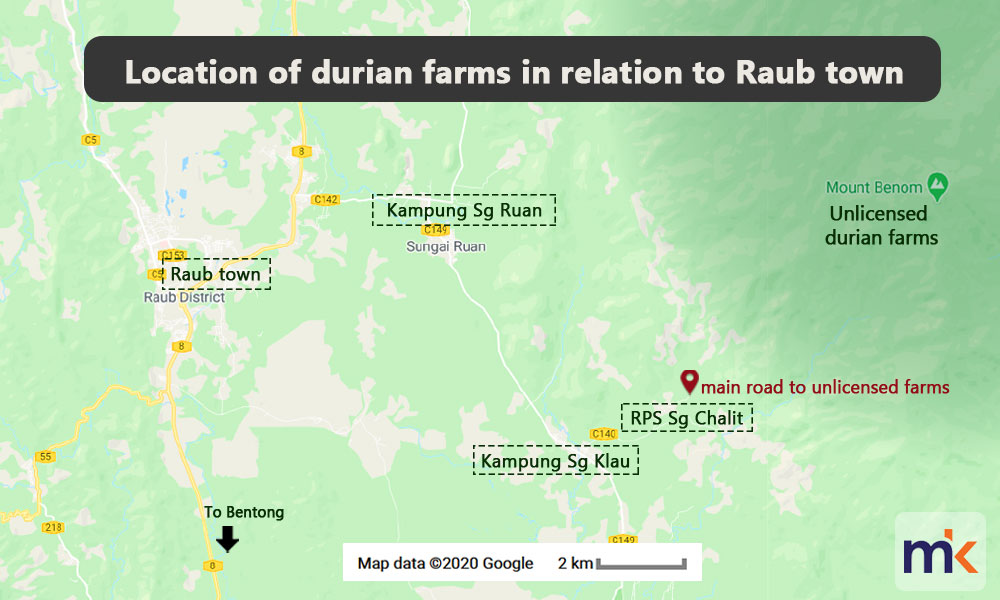
Pahang is the state with the most durian production in Malaysia, and the farms in Raub account for nearly 80 percent of production in the state.
The state government has estimated that there are 11,000 acres (approximately 4,452ha) of unlicensed durian farms in Raub.
On June 24, the Pahang government reportedly awarded the lease and use rights (kebenaran memasuki dan menduduki) of 5,357 acres (2,167.9ha) of land to RPDR-PKPP. The state also announced that it would officially reclaim the illegal farms on Aug 24.
The exact location and boundaries of the land have not been disclosed until now, so it is difficult to determine the exact number of farmers affected.
The “Save Musang King Alliance" (Samka), which was formed by local farmers, estimated that there are hundreds of farmers affected.
Royal Pahang Durian Group (RPD) in an interview with Malay Mail, had denied the accusations of initiating an exploitative agreement with the Musang King durian farmers.
The Group stressed that RPDR-PKPP had been awarded the lease and rights to the 2,167.9ha land in Raub for a 30-plus-30-year contract and claimed that 30 percent of the land had been encroached upon.
A joint statement by RPDR-PKPP also highlighted the importance of regulating the local durian market to avoid the influence of foreign investors which could spell the end for local producers. -Mkini


No comments:
Post a Comment
Note: Only a member of this blog may post a comment.